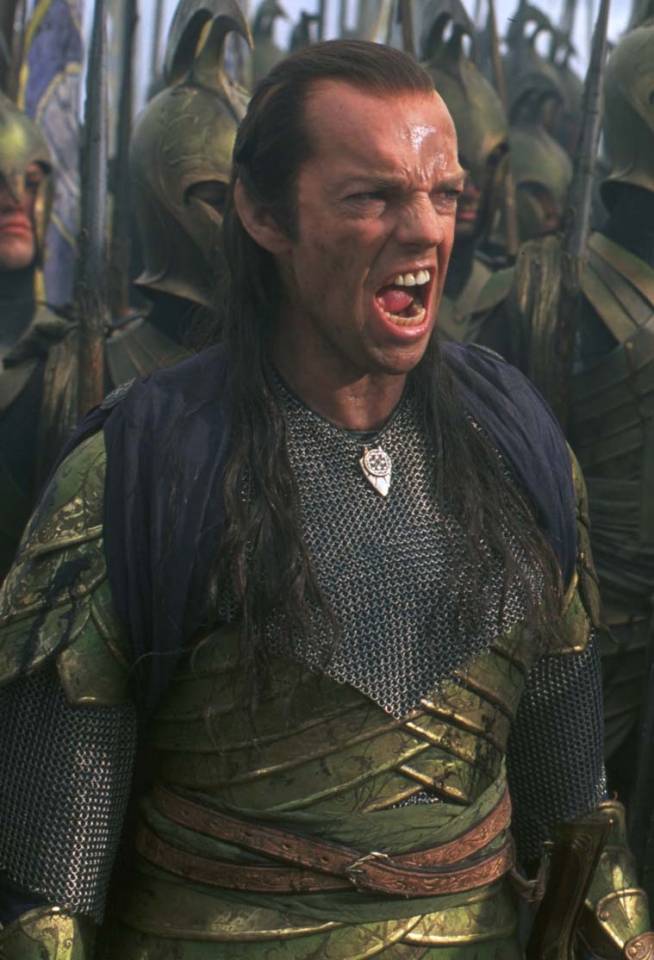The Rings of Power: Amazon's greatest threat yet
The Rings of Power: a tragedy of franchise
Peter Jackson’s The Lord of the Rings trilogy is one of the best loved film adaptation franchises ever, and for many good reasons. Presumably if you’re reading this, you have some idea of The Lord of the Rings (and how brilliant it is), so I won’t go into details. Presumably if you’re reading this, you also have seen Amazon’s The Rings of Power series and have some Opinions. I’d like to preface this by stating that I have a heavy bias against Amazon’s series, but I will do my best to remain diplomatic (at great personal suffering).
The problem with The Rings of Power is not necessarily its writing (although the writing is pretty bad), but I think the main issue Lord of the Rings fans take with the show is that it doesn’t feel quite like the film trilogy. Whilst that’s a valid observation, just because the TV programme has a slightly different aesthetic doesn’t automatically make it bad, per se. There’s also a twenty-ish year difference between Jackson’s films and Amazon’s TV series, which has plenty of major implications. Most prominent in most audience members’ minds is probably the visual effects which are now possible with modern technology. Jackson’s films have survived the test of time in the special effects department, to credit it, but they definitely did not have the same technology available as Amazon’s team does now. This translates onto the screen in aesthetics which look spectacular, but also far more polished and clean than Jackson’s films.
The series lacks the gritty realism of New Zealand’s landscapes and Viggo Mortensen’s dirty face. Amazon's Galadriel survives a literal volcanic explosion whilst staring pyroclastic flow (thousands of degrees in temperature) right in the face - the explosion of Mount Doom no less! - and pulls through with barely a scratch. Sure, she’s an incredibly powerful elf but come on, so is Hugo Weaving’s Elrond and he looks like a wreck in the flashbacks to his battle with Sauron.
On a separate note, the budget difference between Jackson’s films and the Amazon series is staggering. Yes, the difference needs to be put into perspective of the twenty or so years difference, and the economics behind all that (please don’t ask me to explain, I’m an English student not a banker), but also if the budget for The Rings of Power is so absurdly large, why is it, for want of a better phrase, still so bad?
This takes us to why I view this series as a tragedy of franchise. The Rings of Power is every stereotype of franchise spin-offs which suggest that spin-offs are only successful because the people who buy into it are people who are familiar with a particular franchise and therefore have some interest; it’s not a good product in its own right, it just happens to be part of a popular franchise, leeching success from its predecessors. This is pretty much what we see in Amazon’s show. Iconic, beloved, and well respected characters like Lord Elrond and Lady Galadriel are retained in The Rings of Power, placed front and centre, but their storylines are neither particularly interesting, nor particularly relevant. It’s also unfortunate that they are not written to be anything like Tolkien’s characters, or even really like Jackson’s characters, but instead almost as stock fantasy tropes who fit the high fantasy aesthetic.
Amazon’s TV show displays a remarkable lack of creativity. As franchises develop it can certainly become more difficult to be flexible and innovative with ideas of plot, or character, but it is possible. Take Jon Favreau’s The Mandalorian, for example. Everything about the show is both closely tied to the Star Wars franchise and something fans have never seen before - a whole new set of characters, a different period in the timeline, a different genre and aesthetic. The Rings of Power gives us a story where we know what happens in the end, and we have no interest in the gaps between the events we are already familiar with from the books and films. To put it in basic terms, if you know even vaguely that Galadriel and Elrond are present in Peter Jackson’s films, you know at least that they aren’t at any risk of being killed off in The Rings of Power. And that’s just two of the show’s characters.
The thing, I think, that’s at the heart of why this show has made so many fans angry is because it doesn’t give them anything new. It rehashes content that is familiar, and does it badly, whilst hiding behind special effects. The special effects are amazing, but when that’s the best thing about the show, you’ve got a bit of a problem.
I realise at the beginning of this post I declared I’d do my best to be diplomatic about my (largely disdainful) opinions, but I think I might’ve failed in that battle. Such a shame.
So what can we take away from this? Franchises are not just a way of making money, or at least money shouldn’t be the primary aim. Franchises can be part of world-building, expanding a fictional world and audience’s imaginations. In the age of movie franchises, reboots, prequels, and spin-offs, it’s a shame that such a beloved franchise has been so disappointed by The Rings of Power. It is, however, an interesting example of how much film and television has changed since the noughties, not only in technological advances but the demands and expectations of modern audiences.


Comments
Post a Comment